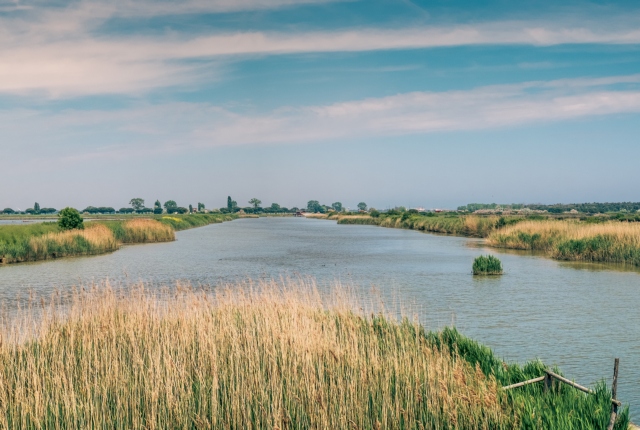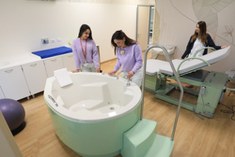Climate change in the Po Delta: a new plan to manage territory and waters

In the Po Delta Park, new solutions are being tested to optimise water use and management in response to climate change. In locations such as the Punte Alberete Oasis, Pialassa Baiona, Valle della Canna, and San Vitale Pinewood, the research group of ACTION – a European project that involves the University of Bologna as well – is working on protecting the ecosystems and ensuring more resilience to climate change.
ACTION is funded by the Interreg Italia-Croazia 2021-2027, focusing on the coastal ecosystems of the Adriatic Sea which are now threatened by rising sea levels, resulting in biodiversity loss, and the salinisation of waters and soil. The aim is to promote adaptation to climate change and disaster risk prevention by providing nature-based solutions (NBS – Natural Based Solution).
"Low and sandy coastal areas such as the Po Delta are fragile ecosystems. They are dynamic and complex environments where urbanisation, industries, tourism, fishing and agricultural activities coexist and interact", says Beatrice Giambastiani, Associate Professor at the Department of Biological, Geological, and Environmental Sciences, and Scientific Manager of the project for the University of Bologna. "The coastal area of Emilia-Romagna is particularly delicate: the combination of a flat topology, an intense hydraulic drainage and precipitations concentrated in a few extreme events is leading to an almost inexistent surface aquifer recharge on the one hand, and the urgency to adopt innovative water management strategies on the other".
For these reasons all environmental data collected over the past decades will be organised and integrated with new data to produce an exhaustive knowledge framework of the area. By integrating the collected information with the projected climate scenarios, researchers will be able to identify the main threats expected in the Po Delta territory, with the aim of creating a management plan of the area and a new hydraulic model for water management.
"The effects of climate change can lead to sudden environmental parameters variations, which then impact the whole ecosystem, and directly affects our everyday lives", says Giambastiani. "The new management plan and hydraulic model will help preserve the area’s unique ecosystems, ensuring more resilience with positive effects on the communities that reside in these coastal areas".
The Department of Biological, Geological and Environmental Sciences of the University of Bologna (Ravenna Campus) is one of the eight partners of the ACTION project, together with the Ravenna municipality (project leader), Po Delta Park, Istituto Delta Ecologia Applicata, Vransko Lake Nature Park, Ruđer Bošković Institute, Regional Natural Park Dune Costiere from Torre Canne to Torre San Leonardo, and the Ploče city. Aside from the Ravenna site, the other three experimental sites are the Regional Natural Park Dune Costiere from Torre Canne to Torre San Leonardo (Apulia), the Vransko Lake Nature Park and the Neretva Delta, both in Croatia.






